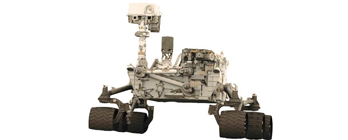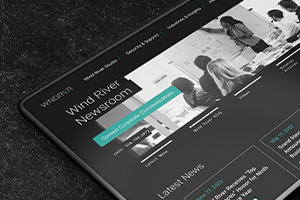VxWorks Powers NASA JPL's Mars Rover Curiosity
When NASA deployed Curiosity, the most technologically advanced autonomous robotic spacecraft and geologist set of its time, VxWorks was the OS powering it through "seven minutes of terror."
Customer Success Story
The Objective
The Curiosity team at NASA JPL needed to build a spacecraft and rover that could withstand the harsh space environment and arrive safely on Mars—in a more precise, complex landing than required by any previous mission. The landing sequences, called “EDL” for “entry, descent, and landing,” presented the most action-packed operations aside from the initial launch. Curiosity also planned to carry 10 times as many scientific instruments and explore a larger area than did previous rovers.
How Wind River Helped
The VxWorks® real-time operating system (RTOS) played a central role in this historic mission. VxWorks provides the core operating system of the spacecraft control system—from the second the rocket left Earth on November 26, 2011, until the end of the mission. NASA’s Jet Propulsion Laboratory (JPL), the lead U.S. center for robotic exploration of the solar system, has used VxWorks as its mission-critical OS brain for more than two decades. The total cost of the Curiosity project is approximately $2.5B and represents eight years of passion and work, so the stakes are high, and a fail-proof, resilient RTOS was a core requirement.
The Results
On August 6, 2012, NASA made an enormous advancement in space exploration when it landed Curiosity in the Gale Crater on Mars. Curiosity is the most technologically advanced autonomous robotic spacecraft and geologist set ever to be deployed by any space venture. It’s on a groundbreaking mission to determine whether Mars is or has ever been capable of supporting life, and to assess its habitability for future human missions.
NASA
Resources



